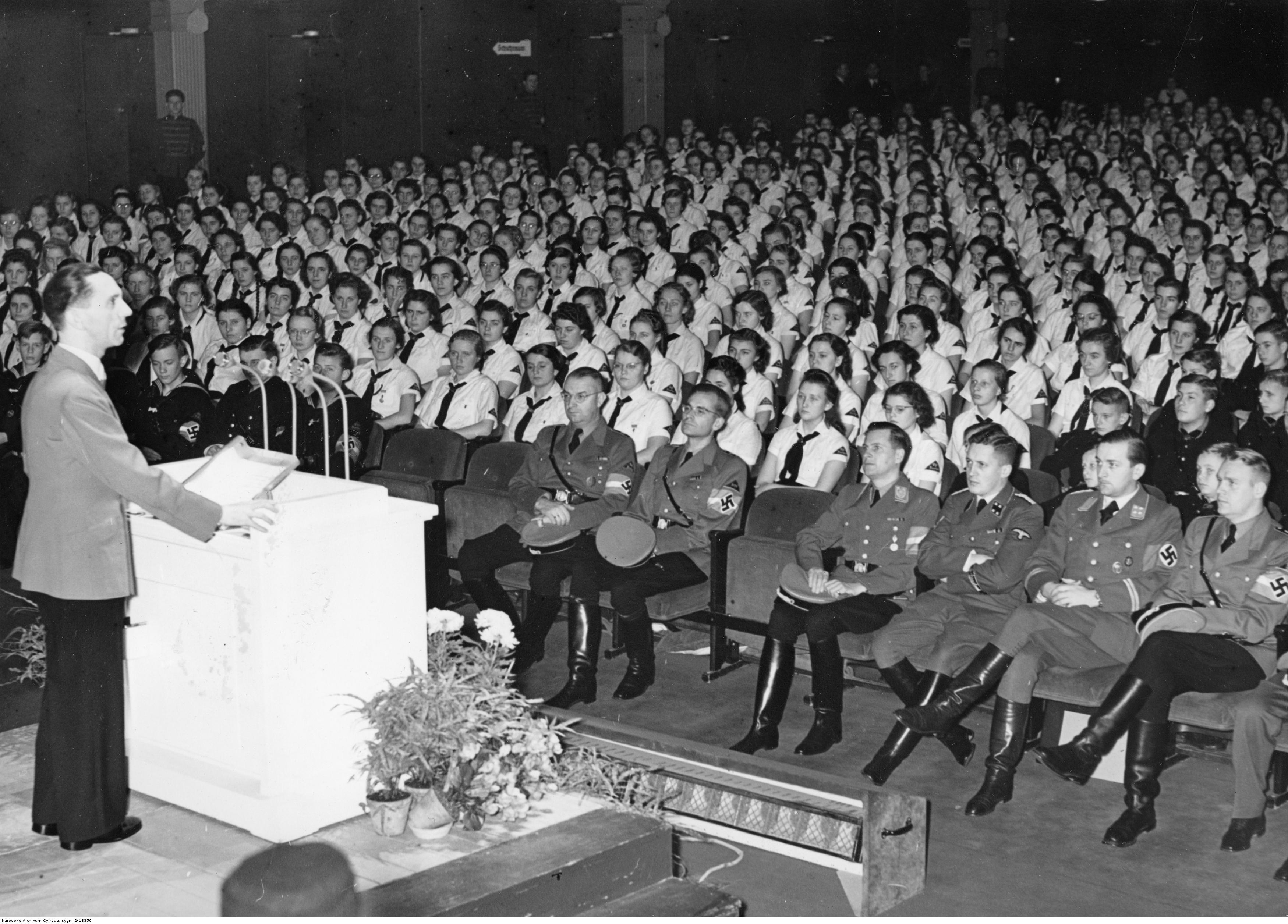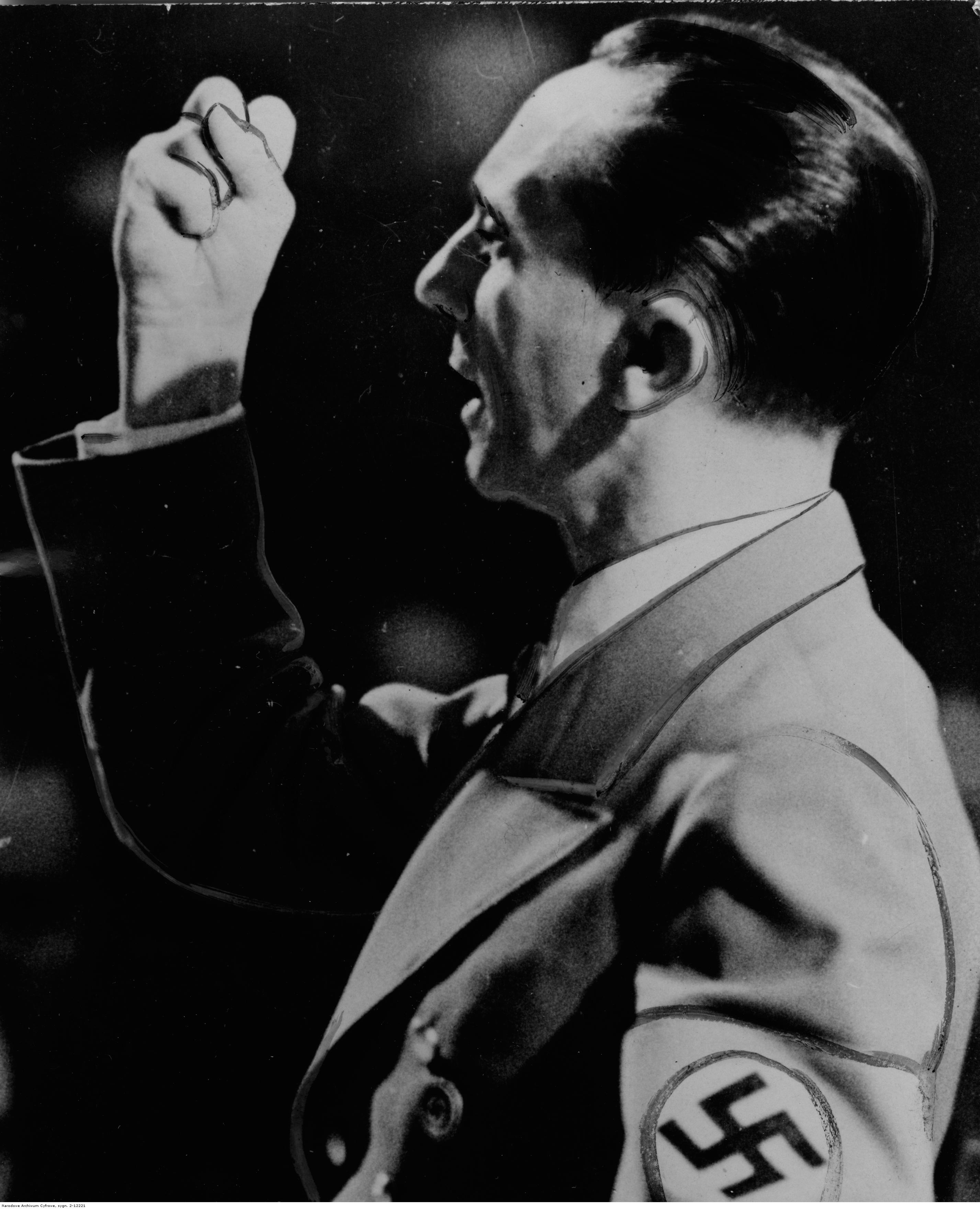
Joseph Goebbels is a name that evokes a sense of dread and intrigue among those who study history, particularly due to his notorious position as the **Nazi minister of propaganda** under Adolf Hitler. His influence was crucial in crafting and disseminating the narratives that ensured the German population remained supportive of the **Nazi regime** during an era marked by immense suffering and moral depravity. But who was Joseph Goebbels beyond his infamous title? To truly understand his significance, we must explore the complexities of his life, the trajectory of his rise to power, and the profound impact he had not only on Germany but also on the world at large. Goebbels was a master manipulator of public opinion, utilizing various forms of media to spread the regime’s ideology and suppress dissent. His strategies laid the groundwork for modern propaganda techniques, making his legacy one that continues to be studied and debated today. By examining his life and actions, we can gain insight into the mechanisms of power and the dangers of unchecked influence in society.
Early Life and Education

Born into a Complex World
Joseph Goebbels entered the world on **October 29, 1897**, in the town of Rheydt, Germany. He was the third child among five siblings in a family that adhered to the **Roman Catholic** faith with great devotion. His father, Friedrich Goebbels, held a position as a factory clerk, while his mother, Katharina Maria Odenhausen, dedicated her time to managing the household. Although the family lived modestly, his parents placed a strong emphasis on the importance of education, ensuring that their children received a solid academic foundation that would serve them well in life.
A Physical Challenge
During his formative years, Goebbels encountered a significant obstacle: he was born with a **clubfoot**, a condition that ultimately exempted him from serving in the military during **World War I**. This physical limitation not only affected his mobility but also ignited a profound yearning within him for recognition and authority. This desire for validation and influence would later play a crucial role in shaping his political aspirations and ambitions, driving him to seek power in various forms.
Academic Pursuits
Upon completing his high school education, Goebbels pursued higher learning at **Heidelberg University**, where he immersed himself in the study of **German philology**. He successfully earned his doctorate in 1922, marking a significant milestone in his academic journey. During his time at university, he developed a keen interest in both literature and politics, which laid the groundwork for his future endeavors in the political arena. His academic achievements not only reflected his intellectual capabilities but also foreshadowed the influential role he would later play in shaping political discourse in Germany.
Political Awakening

Joining the Nazi Party
In the year 1924, Joseph Goebbels found himself increasingly captivated by the ideologies and ambitions of the **Nazi Party**. His natural charisma, combined with exceptional oratory skills, enabled him to quickly ascend through the ranks of the organization. By 1926, he had achieved the significant position of district leader in **Berlin**. This role was pivotal, as it provided him with the opportunity to exert considerable influence over the party’s strategic direction and policies, allowing him to shape the narrative and objectives of the Nazi movement during a critical period of its development.
The Rise of a Propagandist
Goebbels was not merely a politician; he emerged as a **master propagandist** whose understanding of media’s power was unparalleled. He recognized that effective communication was essential for garnering public support and loyalty. To this end, he established the newspaper **Der Angriff**, which served as a vital platform for promoting Nazi ideology and propaganda. Later, he launched **Das Reich**, which further solidified his role as a key figure in shaping public perception of the Nazi regime. Through these publications and various media strategies, Goebbels skillfully crafted a favorable image of the party, manipulating information to align with its goals and ambitions.
Propaganda Machinery

Becoming Minister of Propaganda
In the year 1933, following Adolf Hitler’s ascension to power, Joseph Goebbels was appointed as the **Minister of Propaganda**. This pivotal role afforded him an extraordinary level of influence over the media landscape, cultural narratives, and the overall public perception within Germany. Goebbels emerged as a principal architect in the construction of the **Führer myth**, a campaign that sought to elevate Hitler to the status of a near-mythical figure, revered and unquestioned by the populace.
Controlling the Narrative
To consolidate his power, Goebbels established the **Ministry of Public Enlightenment and Propaganda**, an institution that took charge of all forms of communication, including newspapers, radio broadcasts, and cinematic productions. His methods were often ruthless and manipulative; one of his most notorious actions was the orchestration of the infamous **book burnings** in Berlin, where literature considered “un-German” was publicly incinerated. This act was not merely an exercise in censorship; it was a calculated strategy aimed at molding and controlling public opinion, effectively erasing dissenting voices and alternative viewpoints.
Table: Key Events in Goebbels’ Propaganda Campaign
| Year | Event | Description |
|---|---|---|
| 1933 | Book Burnings | Public burning of books deemed “un-German,” symbolizing the regime’s intolerance of dissent. |
| 1938 | Kristallnacht | A state-sponsored pogrom against Jews in Germany, marked by widespread violence and destruction. |
| 1940 | Film Propaganda | The release of films designed to promote Nazi ideology and glorify the regime. |
World War II and Propaganda

Adapting to Challenges
As **World War II** progressed, Goebbels faced new challenges. The German military suffered significant defeats, particularly at **Stalingrad**. Instead of sugarcoating the situation, he focused on rallying the public, using historical parallels and invoking a sense of national pride to maintain morale.
The Total War Campaign
In 1944, Goebbels was appointed as the **Reich Plenipotentiary for Total War**. This role emphasized the need for total commitment to the war effort, urging every German citizen to contribute. His speeches became increasingly fervent, aiming to galvanize the population in the face of impending defeat.
The Final Days

Hitler’s Death and Goebbels’ Last Stand
On **April 30, 1945**, Adolf Hitler committed suicide. The following day, Goebbels briefly became **Chancellor of Germany**. However, with the Nazi regime crumbling, his leadership was short-lived. He remained in the **Führerbunker**, steadfastly loyal to Hitler until the end.
A Tragic Conclusion
On **May 1, 1945**, in a final act of despair, Goebbels and his wife, **Magda**, poisoned their six children before taking their own lives. This tragic end encapsulated the devastating consequences of their unwavering loyalty to a failed ideology.
Legacy and Impact

A Cautionary Tale
Joseph Goebbels’ life serves as a stark reminder of the power of **propaganda** and the dangers of unchecked political influence. His ability to manipulate public opinion and control the narrative highlights how easily truth can be distorted for nefarious purposes.
Lessons for Today
In our modern world, where information spreads rapidly, the lessons from Goebbels’ era are more relevant than ever. Understanding the mechanisms of propaganda can help us navigate the complexities of today’s media landscape. Are we, too, susceptible to manipulation? It’s a question worth pondering.

Joseph Goebbels was more than just a minister of propaganda; he was a key player in one of history’s most tragic narratives. His life story is a complex tapestry of ambition, loyalty, and ultimately, despair. As we reflect on his legacy, let’s remember the importance of critical thinking and the need to question the narratives presented to us. After all, history has a way of repeating itself if we’re not careful.

